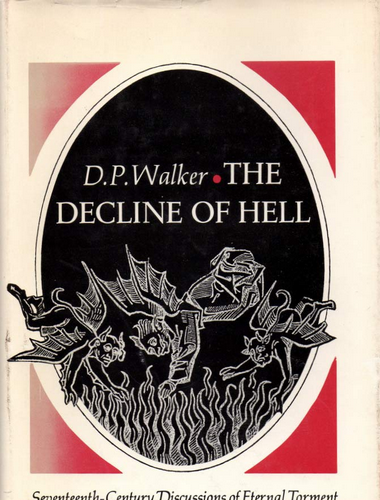
An in-depth survey of views on hell in the 17th century. Fascinating and insightful, if narrow in its scope. Most of the usefulness of the book is in unearthing many of the philosophical questions, conundrums and attempted explanations.
Excerpts
p20, citing Lampe on the phrase "for ages and ages"
Hence it is abundantly clear that the Holy Ghost intended this, that he might express eternity more vervously than it had formerly been done in human language, and remove all possible evasions which the genius of the language seemed otherwise to admit.
p44
Thomas's (Aquinas) own justification of eternal torment is more subtle and satisfactory. Since the torments of hell are infinite in duration but finite in intensity (though much more intense than anything in this life), the sin must be both infinite and finite; it is infinite in that it is a turning away from God, but finite in that it is a turning toward the creature.
p140, summarizing Lady Conway
A creature can make limitless advances towards food, because God is infinite and the creature can approach indefinitely near to Him without even becoming Him. But the same infinite progress towards evil is not possible, because 'there is no Being, which is infinitely and unchangeably Evil, as God is infinitely and uncheangeably Good'. Thus 'there are limits and bounds to Evil; but none unto Good'.
p262
Eternal torment is nowadays an unpopular doctrine among most kinds of Christians; the God of love has nearly driven out the God of vengeance; vindictive justice has had to take refuge among the advocates of hanging; and it is no longer considered respectable to enjoy the infliction of even the justest punishment. I am not asserting that we now behave or feel less cruelly , but only that we are more worried about the abominations we commit.
